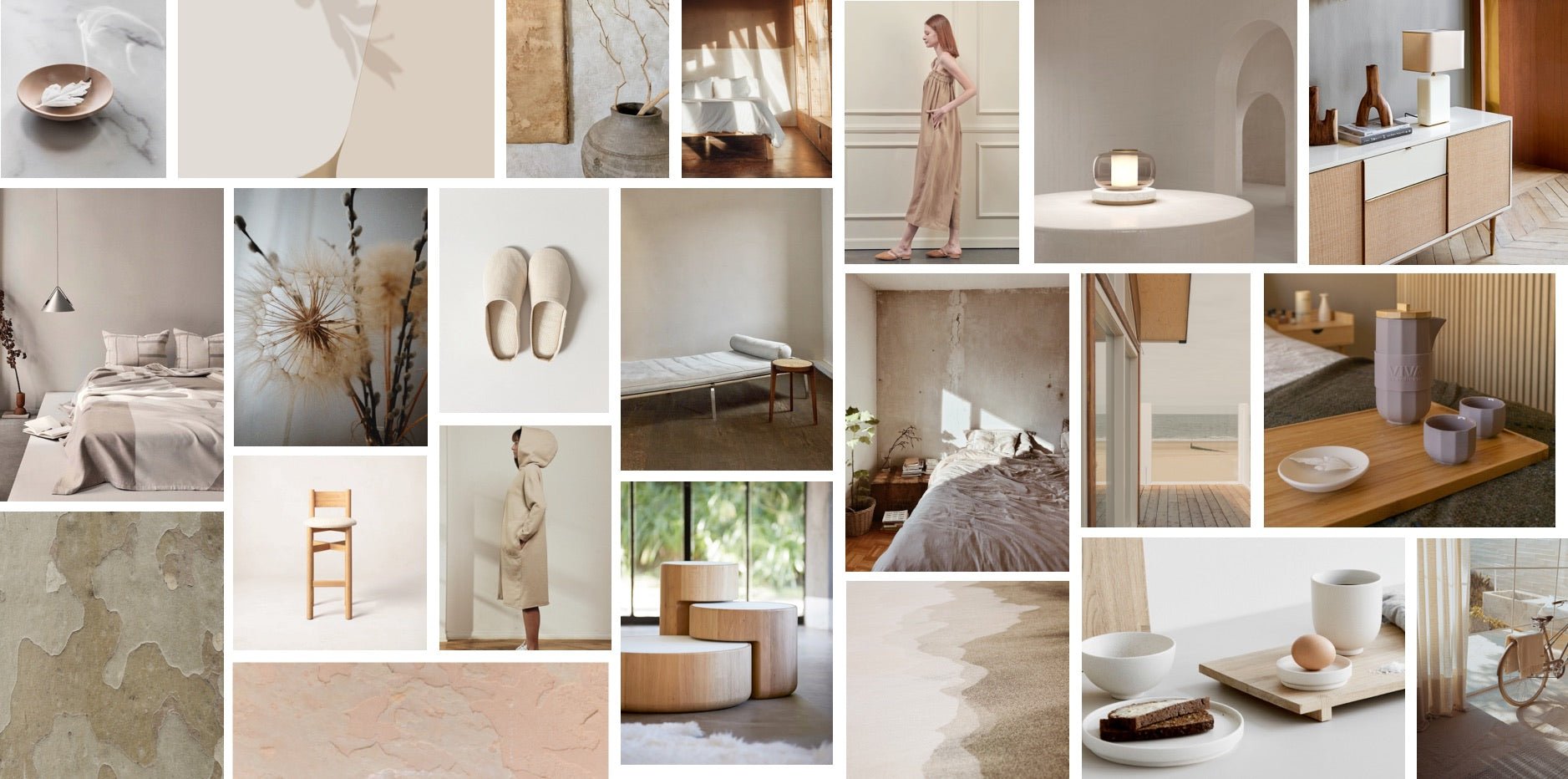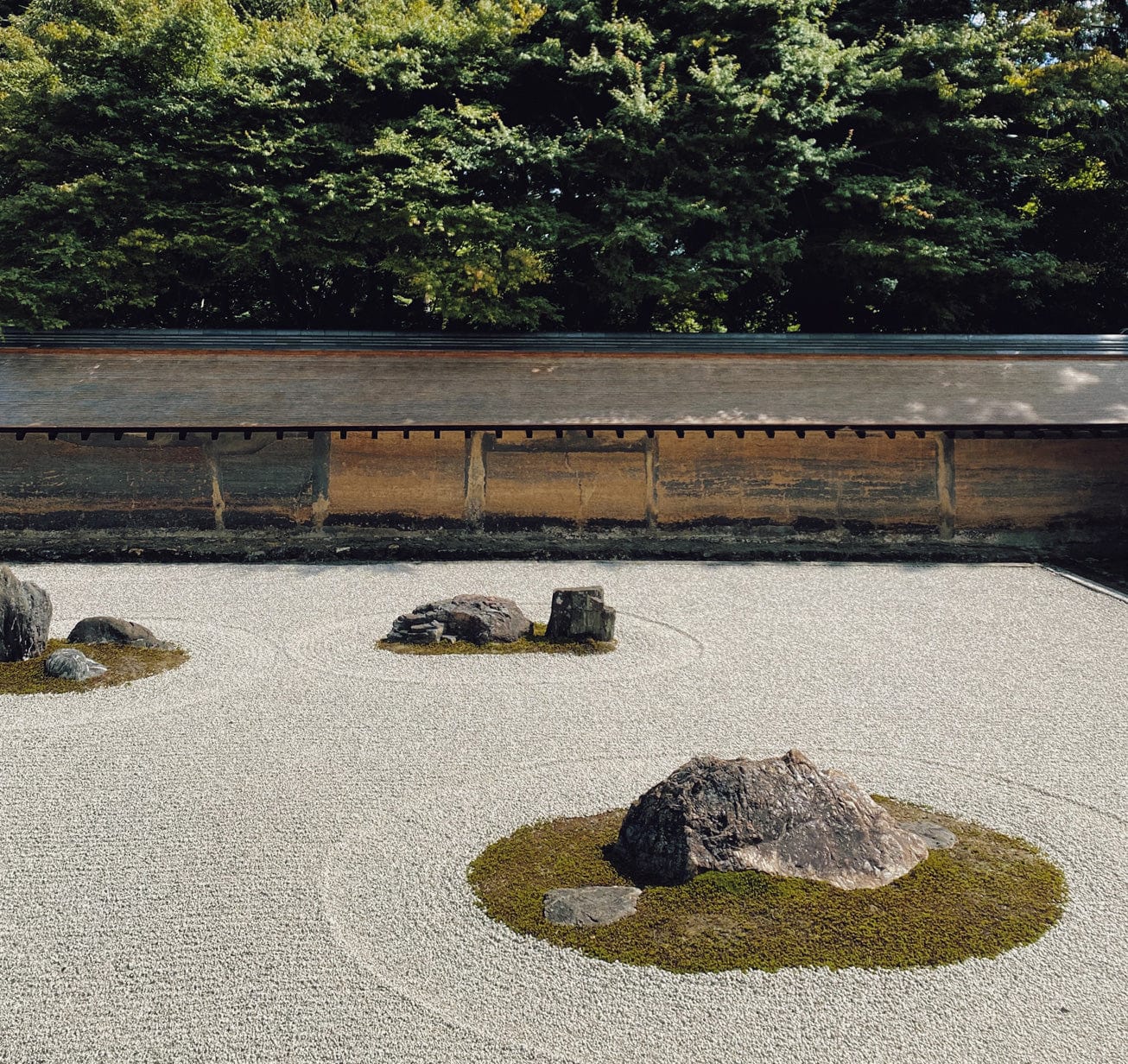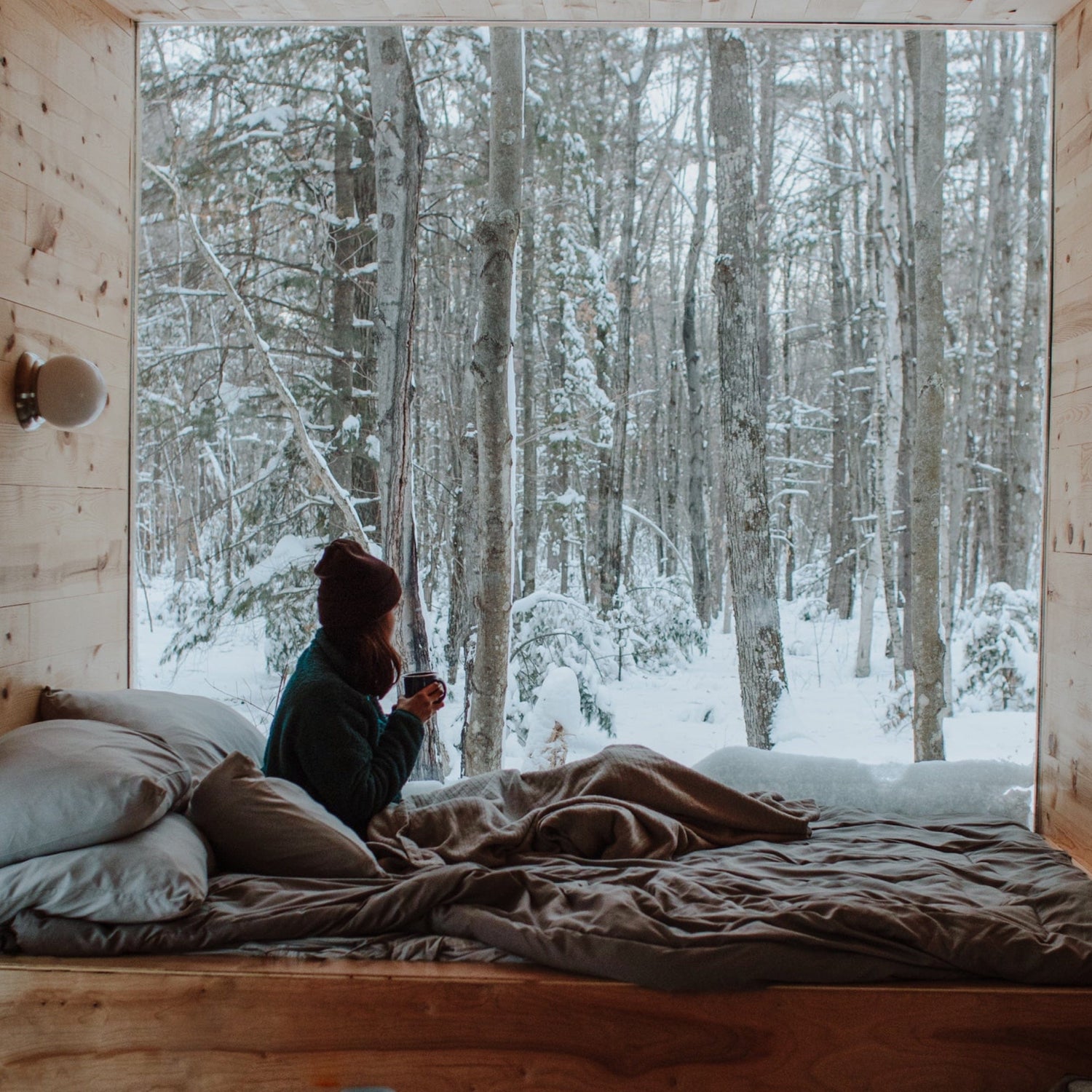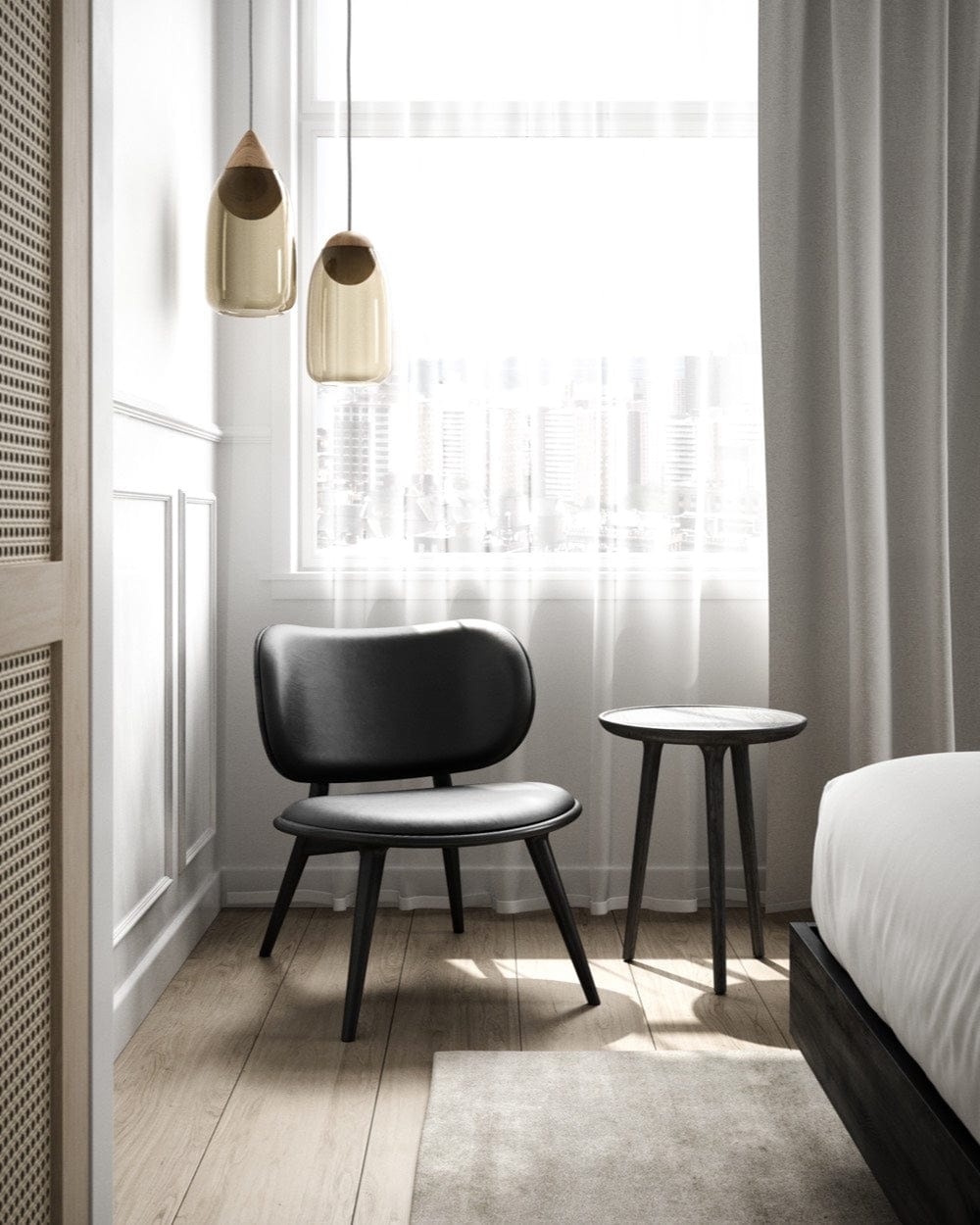


Japandi is a hybrid of Japanese minimalism and Scandinvian cozy.
Japandi evokes calmness and serenity in your environment and daily rituals.
Japandi as a word is the union of Japanese and Scandi (Scandinavian). Scandinavia geographically includes Denmark, Norway and Sweden.
The word origin dates back to a time when Danish designers were allowed to travel to Japan - a border which had long been closed for hundreds of years.
Japandi emerged as a design style built on the philosophies of Wabi-Sabi from Japan, and Hygge from Denmark. Combining these philosophies created the Japandi fundamentals; embrace minimalism, nature, comfort and neutral colors.
Japandi Philosophies
Japandi is based on Wabi-Sabi from Japan, and Hygge from Denmark.

Wabi-Sabi
Japan | Wabi-Sabi
Wabi-sabi, as summarized by Richard Powell, nurtures all that is authentic by acknowledging three simple realities:
~ nothing lasts,
~ nothing is finished,
~ nothing is perfect.
Wabi-sabi is often condensed to "wisdom in natural simplicity."
wabi originally referred to the loneliness of living in nature, remote from society;
sabi meant "chill", "lean" or "withered".
Around the 14th century, these meanings began to change, taking on more positive connotations.
After centuries of incorporating Buddhist and Chinese influences wabi-sabi evolved into distinctly Japanese.
Wabi-Sabi Fundamentals

Hygge
Denmark | Hygge
Hygge is a word in Danish and Norwegian that describes a mood of coziness and "comfortable conviviality" with feelings of wellness and contentment.
Hygge has more or less the same meaning in both places and in both languages.
Emphasis on hygge as a core part of Danish culture is a recent phenomenon, dating to the late 20th century.
For the Danish it has become an important part of their culture while in Norway “hygge” is just a word like “cozy”. Hygge (the noun) refers to a psychological state including something nice, cozy, safe and known.
Winter and Autumn are typically the seasons assciated with hygge, but moments of hygge can happen all year, including spring and summer.
Hygge Fundamentals
Japandi Fundamentals
When combining the philosophies of wabi-sabi and hygge there are fundamentals that arise as the basis for Japandi. There are many aspects to Japandi design and lifestyle, but after much research these can be narrowed to four primary fundamentals; minimalism, nature, comfort and neutrals. Let's explore these.

Minimalism
Minimalism in reference to Japandi is the use of the simplest and fewest elements (furniture, décor) to achieve the maximum effect – a calming one. Minimalism in the Japandi lifestyle refers to getting rid of clutter and distractions, instead focusing on the essentials and what matters most in your life.
Instead of many, focus on essentials, the idea of less and meant-for-longer.

Embrace Nature
Japandi embraces not only sustainability and natural materials, but also the imperfections in nature and life itself. Natural wear-and-tear, rough surfaces, patina and greenery are all beautifully Japandi. Japandi furniture is built from long-lasting real wood and metal, so it can move as you do (or recirculated to a new home) instead of ending up in a landfill.
Japandi interiors include plants that boost your emotional and mental health.
- Include Plants Indoors ; Enjoy Nature Outdoors
- Celebrate Beauty in Nature's Imperfections
- Respect Nature's Materials and Wear-and-Tear
- Seek out Durablity, Sustainability and Circularity
- Use Natural Lighting

Neutral Color Palette
Japandi uses a neutral color palette to create calm, serene spaces. Layering neutral shades with your furniture, walls, floors, fixtures, décor and textiles creates open, calming interiors. Japandi lifestyle apparel utilizes neutral, layered pieces to create a simple, modular wardrobe.
- Neutral Colors in Interiors
- Neutral Colors in Lifestyle Products
- Japandi Palette includes Greenery from Nature
- Neutrals Alleviate Stress, Anxiety and Depression
- Easy to Interchange Extending Product Lifecylces
- Neutrals are Timeless

Cozy & Comfortable
Japandi embraces Hygge with a focus on seeking comfort - through materials, environment, design, enjoying the moment, and creating feelings of happiness and contentment.
- Enjoy the Moment
- Feelings of Happiness, Safety and Content
- Enjoy Personal Wholeness and Wellbeing
- Seek Comfort through Materials, Design and Environment
Japandi is more than an interior design style; it's a way of life promoting calmness, serenity, mental health and well-being.
Japandi Supply House is dedicated to calm, serene living. Japandi inspires deep breathes and peaceful feelings. We curate the thoughtfully designed, harder-to-find, next level cozy in Japandi lifestyle and home.
Share Your Japandi with Us!
#japandisupplyhouse @japandisupplyhouse

